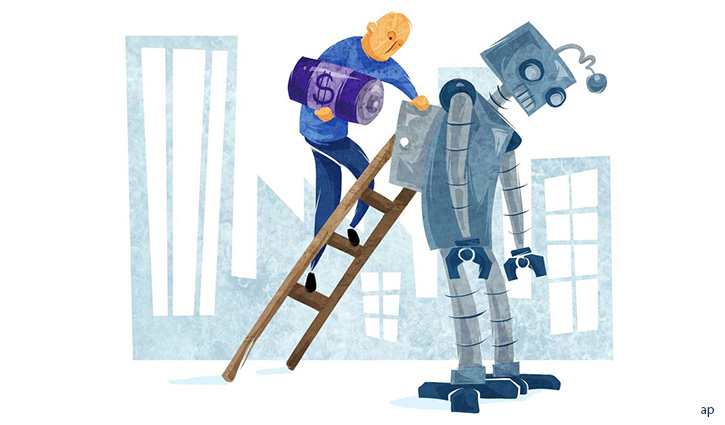
The recent decision of the board at tech firm OpenAI to unceremoniously fire its SEO Sam Altman has taken the business world by storm. The OpenAI saga, unfolding with twists and turns, and U-turns has sent shockwaves through the tech and investment communities, raising critical questions about corporate governance and investor rights.
While ChatGPT maker OpenAI, in which global tech giant Microsoft has invested more than US$10 billion, is not a publicly listed company, the ongoing drama surrounding the power struggle at OpenAI serves to highlight the issue of investor rights when companies’ board members collude or fight to make or oppose critical self-serving moves that may not be in the larger interest of stakeholders.
Similar media spectacles have played out in many publicly listed companies, including Rogers Inc, in the not-so-distant past. The highly publicized Rogers family saga that made headlines last year involved a fight for control of the company and brought a sharp spotlight on the impact of such power struggles and infighting on investor rights.
As a shareholder, it can be concerning when a company's governance structure concentrates voting rights among a select group, thereby granting them large influence with minimal oversight.
Hence, this may be a good time to take a close look at shareholder rights investors acquire when they buy stocks of public companies. When you purchase a share in a publicly traded company, it’s a good idea to understand the rights you gain as a shareholder. These rights give investors a certain level of influence as a partial owner of the company.
What It Means to Be a Shareholder
As a shareholder in a company, you essentially hold a piece of that corporation. Shares of public companies are usually bought on stock exchanges where they are traded, but they can also be acquired through public offerings or private sales.
Although you don't manage the company's daily operations, being a shareholder gives you certain legal rights against the corporation, its directors, officers, and controlling shareholders. These rights are legal protections provided to you by both local and federal law.
Your Rights as a Shareholder
Typically, being a shareholder comes with certain privileges such as the ability to vote on key issues, the entitlement to a portion of the company's profits in the form of dividends, and a claim on the residual assets of the company in the event of insolvency. However, the extent of these rights can differ based on the type of shares you hold, whether they are preferred or common, two main types of stocks. The majority of stocks sold are common stocks.
Preferred shares: Preferred shares are a unique type of equity that, while not granting voting rights at shareholder meetings, offer the advantage of dividend payments. In the hierarchy of payouts in the event of a company's dissolution or insolvency, preferred shares sit comfortably between debt and common shares. This means that, while debtholders are first in line to recoup their investments, preferred shareholders are next, receiving the value of their shares ahead of those holding common shares.
Common shares, on the other hand, provide holders with the power to vote but do not guarantee dividends. In the event of a company’s dissolution or bankruptcy, these shares are considered lower in priority compared to preferred shares when it comes to payouts.
In some instances, corporations can have a dual-class share structure under which a company issues two different classes of shares, each with its own level of voting rights and control. For example, Canadian telecom giant Rogers Communications Inc. offers Class A voting shares and Class B non-voting shares.
Common shares with a voting option allow shareholders to weigh in on important company matters at shareholders’ meetings.
Both common and preferred shares offer shareholders the following rights:
Voting right: Holding common shares in a publicly traded company grants you the privilege to participate in shareholder meetings. Here, you can exercise your voting rights to influence key decisions, such as electing or removing members of the board of directors or voicing your opinion on significant matters like mergers or restructuring.
Right to information: Corporate regulations at the federal, provincial, and territorial levels, along with securities laws in provinces and territories, grant shareholders the right to access such information as lists of shareholders, the company's articles and bylaws, and minutes from shareholder meetings.
Dividends and profits: Provided the company is solvent, those who hold preferred shares are entitled to receive dividends before those with common shares. While common shareholders typically don't have a guaranteed right to dividends, the decision to distribute, cut or raise dividends ultimately lies with the corporation.
Entitlement to reimbursement in case of bankruptcy: As noted previously, in situations of insolvency or liquidation, preferred shares generally have precedence over common shares when it comes to disbursements. However, both types of shares are subordinate to secured and unsecured debt in the distribution hierarchy.
Selling stocks: Owners of a publicly traded company's shares have the liberty to sell their shares whenever they wish, including on a stock exchange.
Right to oppression remedy: Shareholders possess the right to bring a lawsuit against a company through a provision known as the "oppression remedy." This legal recourse, available under federal, provincial, and territorial corporate laws, allows a shareholder to seek court intervention if the corporation, its affiliates, or its directors have acted in a manner that is oppressive, unfairly prejudicial, or dismissive of the complainant's interests. This remedy serves to safeguard the reasonable expectations of shareholders and other complainants.
What Can You Do With Your Rights?
Shareholder activism is when people who own shares in a company use their rights as shareholders to make changes in the company. They might do this by voting to change the company's directors, or by bringing up issues for all the shareholders to vote on. This usually happens in public companies, where anyone can buy shares. Shareholder activism often happens when the company isn't doing very well, or when the shareholders and the company don't agree on what the company should do.







:quality(80)/cloudfront-us-east-1.images.arcpublishing.com/morningstar/MNPB4CP64NCNLA3MTELE3ISLRY.jpg)












